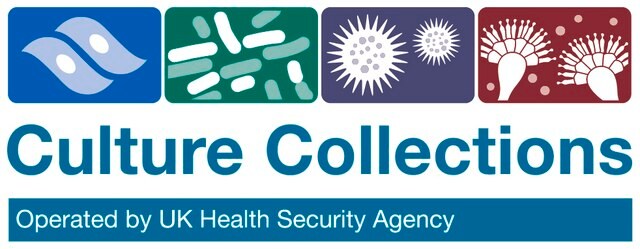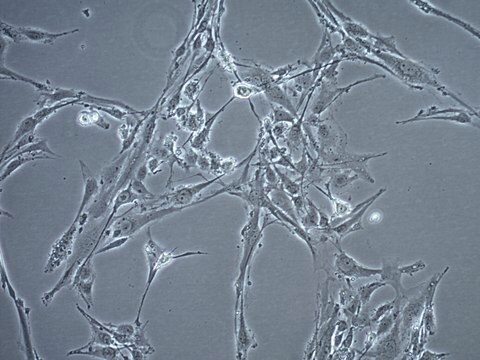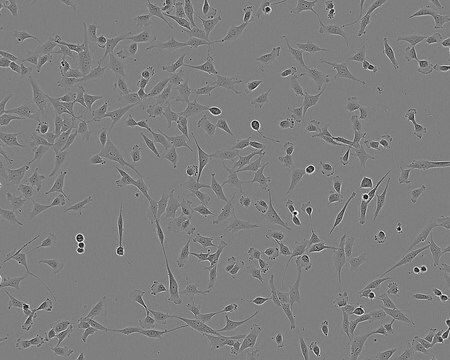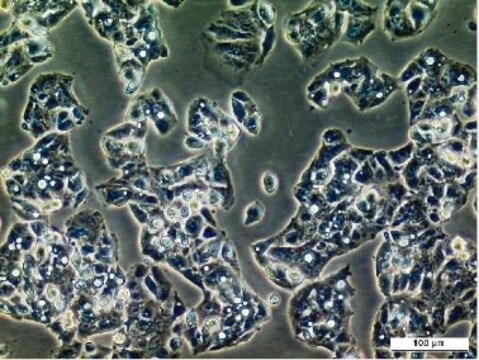SCC430
ALMC-1 Plasma Cell Myeloma Cell Line
Synonym(s):
ALMC1
Sign Into View Organizational & Contract Pricing
All Photos(2)
About This Item
UNSPSC Code:
41106514
NACRES:
NA.81
Recommended Products
packaging
vial of ≥1X10⁶ cells/vial mg
Quality Level
manufacturer/tradename
Millipore
growth mode
N/A
technique(s)
cell analysis: suitable
shipped in
liquid nitrogen
storage temp.
−196°C
Application
Each vial contains >1X106 viable cells.
Cells are tested negative for infectious diseases by a Human Essential CLEAR panel by Charles River Animal Diagnostic Services.
Cells are verified to be of human origin and negative for inter-species contamination from mouse, rat, Chinese hamster, Golden Syrian hamster, and Non-human Primate (NHP) as assessed by a Contamination Clear panel by Charles River Animal Diagnostic Services
Cells are negative for mycoplasma contamination.
Cells are tested negative for infectious diseases by a Human Essential CLEAR panel by Charles River Animal Diagnostic Services.
Cells are verified to be of human origin and negative for inter-species contamination from mouse, rat, Chinese hamster, Golden Syrian hamster, and Non-human Primate (NHP) as assessed by a Contamination Clear panel by Charles River Animal Diagnostic Services
Cells are negative for mycoplasma contamination.
Primary systemic amyloidosis is a plasma cell disease characterized by deposition of misfolded immunoglobulin (Ig) light chain products as amyloid fibrils throughout vital tissues and organs. Amyloidosis may present as a range of symptoms, including nervous system dysfunction, swelling, fatigue, and pain in the extremities (1). Patients with amyloidosis often suffer from other plasma cell diseases such as multiple myeloma, making the study of amyloidosis and development of potential targeted treatments extremely challenging.ALMC-1 was the first plasma cell amyloidosis cell line isolated and is characterized by c-myc amplification and deletion of the tumor suppressor p53 (2). The Ig lambda secreted by ALMC-1 cells has been shown to form amyloid fibrils in vitro (2). ALMC-1 cells proliferate in presence of IL-6, a critical factor supporting tumor growth in the bone marrow microenvironment (2). ALMC-1 cells are hypotetraploid, express CD44, and overexpress the oncogene MAFB (2). The ALMC-1 plasma cell myeloma cell line represents a valuable and clinically relevant model for amyloidosis and studies of the mechanisms of myeloma progression. SourceThe ALMC-1 cell line was isolated from bone marrow of a 50-year old female patient with amyloidosis and later diagnosed with multiple myeloma (3).References1. J Am Coll Cardiol 2016; 68(12): 1323-1341.2. Blood 112 Suppl 2008; 1: 2732a-2832a.3. Cancer Res 1993; 53:5320-5327.
Features and Benefits
The ALMC-1 plasma cell myeloma cell line is a clinically relevant model for amyloidosis and studying the mechanisms of myeloma progression.
Storage and Stability
The cells should be stored in liquid nitrogen. The cells can be cultured for at least 10 passages after initial thawing without significantly affecting the cell marker expression and functionality.
Other Notes
This product is intended for sale and sold solely to academic institutions for internal academic research use per the terms of the “Academic Use Agreement” as detailed in the product documentation. For information regarding any other use, please contact licensing@emdmillipore.com.
Disclaimer
RESEARCH USE ONLY. This product is regulated in France when intended to be used for scientific purposes, including for import and export activities (Article L 1211-1 paragraph 2 of the Public Health Code). The purchaser (i.e. enduser) is required to obtain an import authorization from the France Ministry of Research referred in the Article L1245-5-1 II. of Public Health Code. By ordering this product, you are confirming that you have obtained the proper import authorization.
Unless otherwise stated in our catalog or other company documentation accompanying the product(s), our products are intended for research use only and are not to be used for any other purpose, which includes but is not limited to, unauthorized commercial uses, in vitro diagnostic uses, ex vivo or in vivo therapeutic uses or any type of consumption or application to humans or animals.
related product
Product No.
Description
Pricing
Storage Class Code
10 - Combustible liquids
WGK
WGK 2
Flash Point(F)
Not applicable
Flash Point(C)
Not applicable
Certificates of Analysis (COA)
Search for Certificates of Analysis (COA) by entering the products Lot/Batch Number. Lot and Batch Numbers can be found on a product’s label following the words ‘Lot’ or ‘Batch’.
Already Own This Product?
Find documentation for the products that you have recently purchased in the Document Library.
Our team of scientists has experience in all areas of research including Life Science, Material Science, Chemical Synthesis, Chromatography, Analytical and many others.
Contact Technical Service





